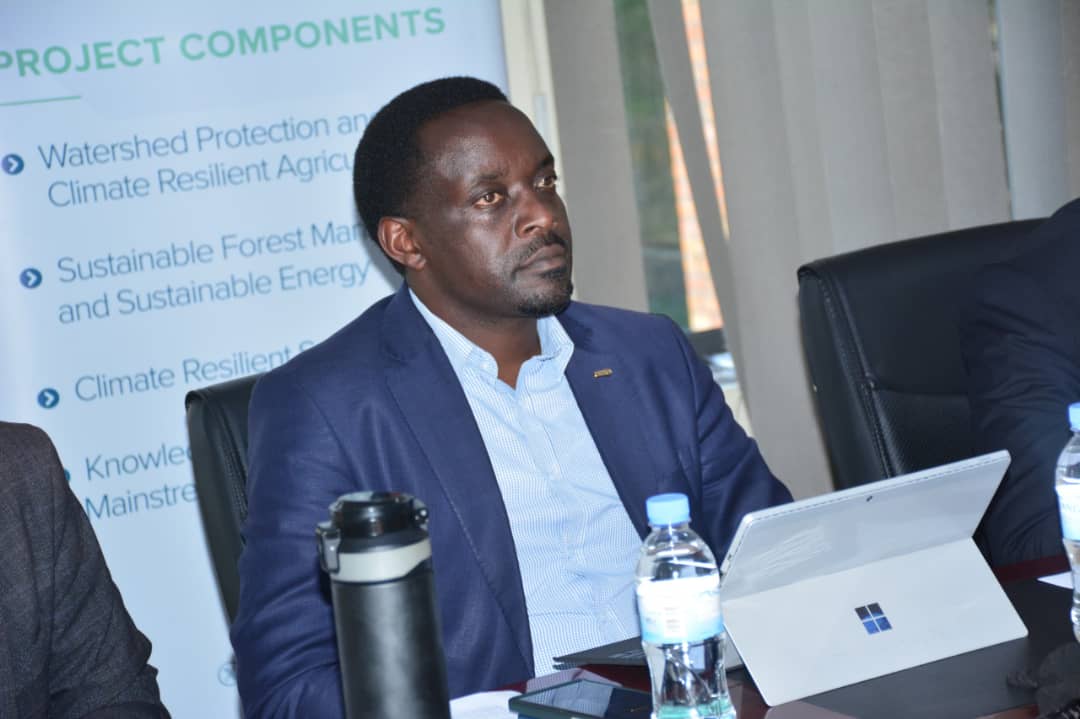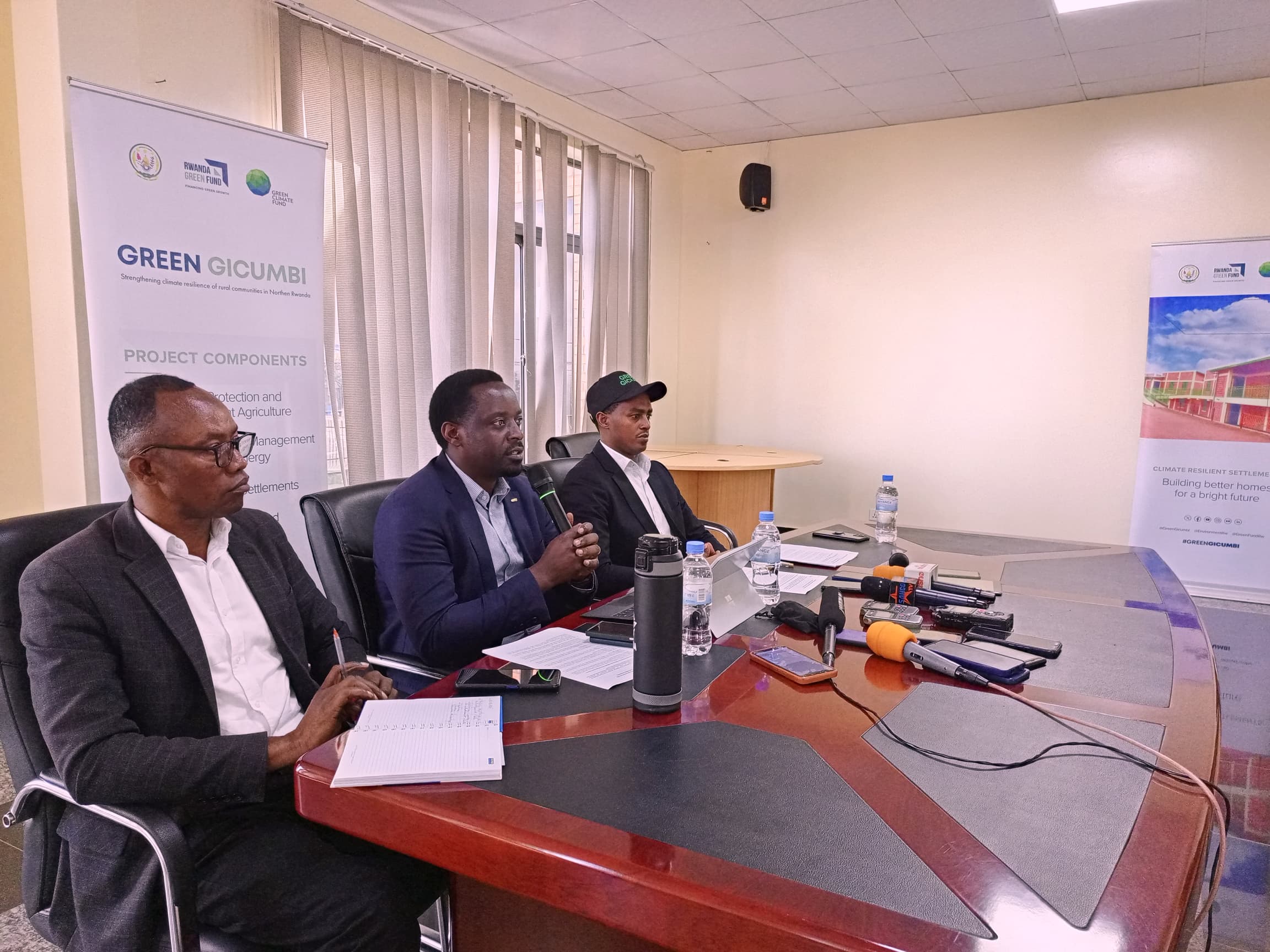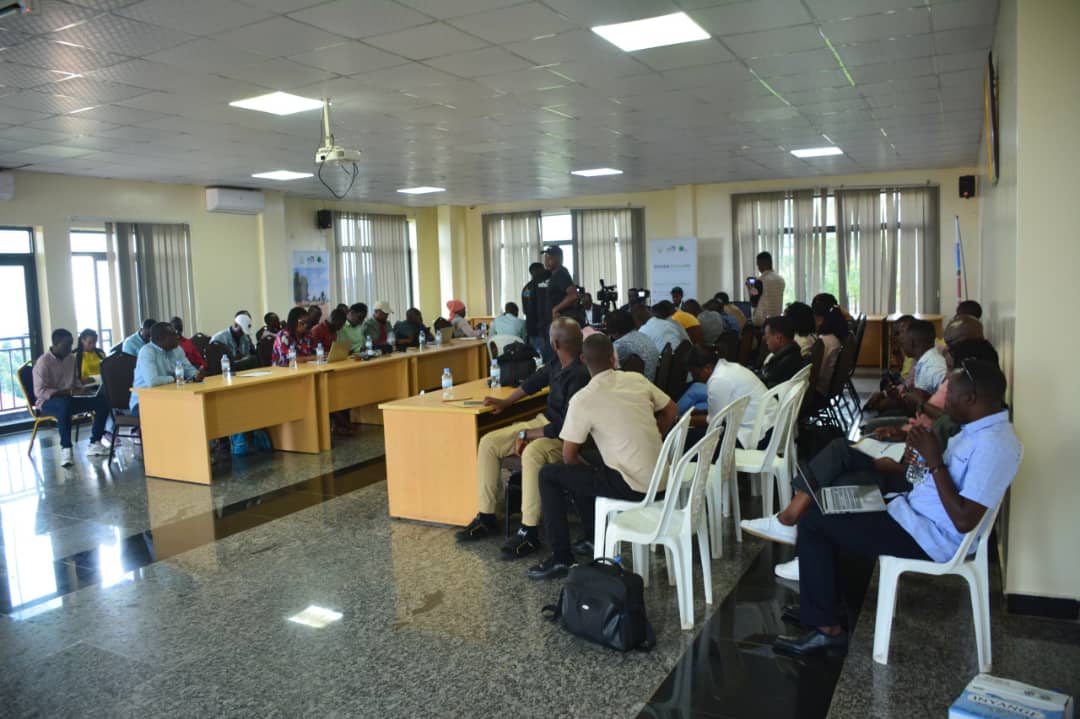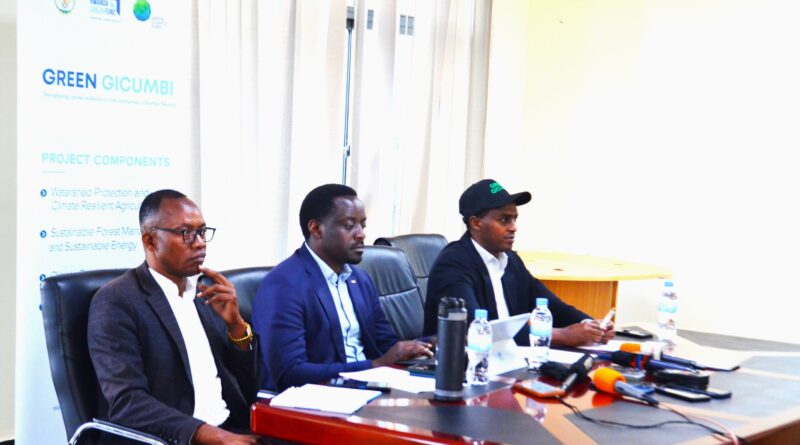Green Gicumbi Project prioritizes education and infrastructure to tackle Climate Change
Over the past five years, Gicumbi District has made notable progress in combating and adapting to the effects of climate change, largely thanks to the Green Gicumbi Project.
Implemented across nine sectors of the district, the project has achieved multiple objectives including environmental conservation, promotion of climate-resilient housing, and a strong emphasis on community education to build new mindsets toward disaster preparedness.
One of the major achievements of the project has been the rehabilitation of forests across 2,050 hectares, where residents were supported to plant trees at no cost.
They also received agroforestry trees to support sustainable farming. Community outreach sessions educated people on the importance of managing forests responsibly and avoiding the random harvesting of firewood, which contributes to air pollution.

To combat soil erosion and improve agricultural productivity, the project constructed progressive terraces across 600 hectares and dug more than 3,000 drainage trenches to channel rainwater and prevent land degradation.
These activities were supported by efforts to protect the Muvumba watershed, a key water source in the region.
As part of efforts to relocate vulnerable populations living in high-risk zones, 100 families were resettled in two modern villages built using climate, resilient standards. The houses incorporate green technologies and promote safe, sustainable living conditions.
The project also implemented extensive knowledge,sharing activities, where local communities were trained on environmental conservation and food security using climate-smart agriculture techniques, alongside guidance on safe settlement planning.
On June 2, 2025, during a stakeholder and journalists event to review the project’s achievements, leaders from various institutions commended the work accomplished.
Gicumbi District Mayor Nzabonimpa Emmanuel highlighted the strong engagement of local communities and stressed the importance of expanding the knowledge and benefits of the project to the remaining 12 sectors not yet covered by Green Gicumbi.
Jean Marie Vianney Kagenza, the Project Manager, acknowledged that one of the biggest challenges at the start was changing community mindsets. “People believed that old trees were meant to be cut for firewood, not realizing how that contributes to climate change. We had to explain that our goal was to mitigate the climate crisis. We helped them rehabilitate forests for free and even paid them for their labor. But the mindset shift took time,” he said.

He added: “These activities not only helped restore the environment but also created income opportunities for residents. Many used the earnings from the project to save money, invest in farming and livestock, while others are now harvesting honey from the rehabilitated forests through beekeeping. These are real, tangible changes that people can see and feel. What remains is to sustain and build on them together.”
Back in 2018, Gicumbi was ranked as the second most climate-affected district in Rwanda. Today, it is no longer among those frequently hit by disasters ,clear evidence of the impact such initiatives can have.
The Green Gicumbi Project is expected to run for one more year, and local authorities affirm their commitment to continue raising awareness and exploring new opportunities to scale its benefits to all communities in the district.



